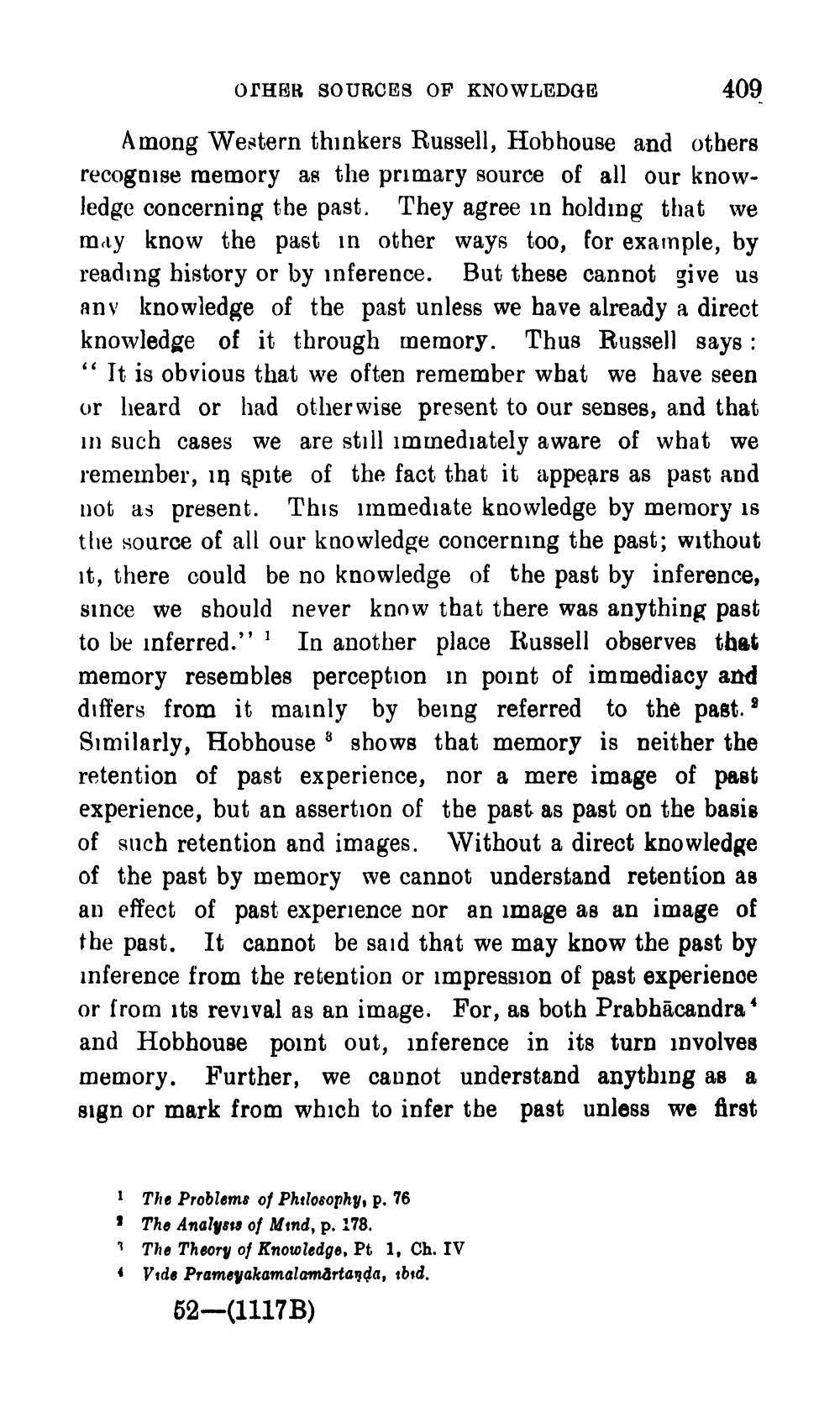________________
OTHER SOURCES OF KNOWLEDGE
409 Among Western thinkers Russell, Hobhouse and others recognise memory as the primary source of all our knowledge concerning the past. They agree in holding that we may know the past in other ways too, for example, by reading history or by inference. But these cannot give us any knowledge of the past unless we have already a direct knowledge of it through memory. Thus Russell says : “ It is obvious that we often remember wbat we have seen or lieard or had otherwise present to our senses, and that in such cases we are still immediately aware of what we remernber, in spite of the fact that it appears as past and not as present. This immediate knowledge by memory 18 the source of all our knowledge concerning the past; without it, there could be no knowledge of the past by inference, since we should never know that there was anything past to be inferred."' 1 In another place Russell observes that memory resembles perception in point of immediacy and differs from it mainly by being referred to the past. 9 Similarly, Hobhouse 8 shows that memory is neither the retention of past experience, nor a mere image of past experience, but an assertion of the past as past on the basis of such retention and images. Without a direct knowledge of the past by memory we cannot understand retention as an effect of past experience nor an image as an image of the past. It cannot be said that we may know the past by inference from the retention or impression of past experience or from its revival as an image. For, as both Prabhācandra * and Hobhouse point out, inference in its turn involves memory. Further, we cannot understand anything as a sign or mark from which to infer tbe past unless we first
1 The Problems of Philosophy, p. 76 1 The Analysis of Mind, p. 178. ? The Theory of Knowledge, Pt 1, Ch. IV Vide Prameyakamalamartanda, ibid.
52–(1117B)




